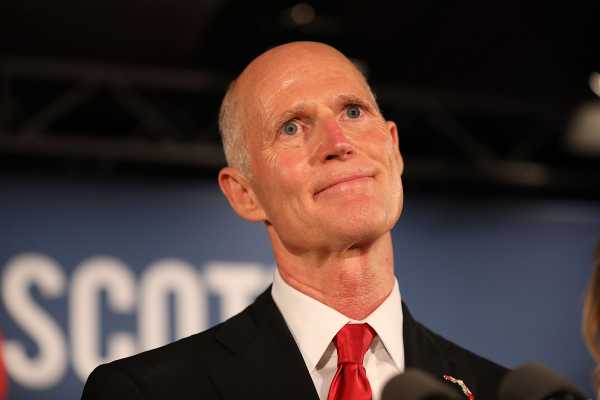
Over the weekend, the recount in Florida’s Senate race ended. Republican Rick Scott, who’s currently the governor of Florida, beat Democratic incumbent Bill Nelson by a mere 10,033 votes — a razor-thin margin in an election where more than 8.1 million votes were counted.
But if people with felony records could have voted in the state this year, Nelson would have had a very good chance of remaining in the Senate.
This is relevant because Florida voters in the midterm elections approved Amendment 4, a ballot initiative to let people with felony records vote after their sentences are completed, excluding those convicted of murder and felony sex offenses.
Florida was one of three states, along with Iowa and Kentucky, that didn’t let people convicted of felonies vote even after they completed their sentences. As a result, Florida had disenfranchised more people due to felony records than any other state, due to its strict law and relatively large population. As many as 1.4 million Floridians regained the right to vote with Amendment 4, based on the Sentencing Project’s 2016 estimates.
This particularly affected black Floridians. Because black people are disproportionately likely to be arrested and incarcerated, they’re disproportionately represented in the disenfranchised population. Although 9.2 percent of the voting-age population in Florida was disenfranchised by the state law and now won’t be under Amendment 4, 17.9 percent of the black voting-age population was, according to the Sentencing Project.
Black people are also more likely to vote for Democrats.
The question was just how big the effect of Amendment 4 might be. Even though black people are disproportionately represented, they’re also still a minority — about 28 percent — of those who got their voting rights back. And not everyone who regains the right to vote ends up registering and voting; in fact, most don’t appear to vote in the end.
Studies on how many of them eventually might vote, and how they’ll vote, are by no means conclusive. But Marc Meredith at the University of Pennsylvania and Michael Morse at Yale and Harvard have done some work trying to calculate exactly how much different parties would benefit as a result of Amendment 4. Referencing research that extrapolated numbers based on previous enfranchisement efforts for people convicted of felonies in Florida, Meredith and Morse wrote for Vox:
That adds up to about 48,000 votes on net for Democrats.
That has some caveats. It’s an estimate based on historical enfranchisement efforts, so it could be off. The real figure may be lower or higher; we just don’t know. It’s also based on 2016 numbers, which are, due to higher general turnout, likely higher than the 2018 figures. And the way that those 40,000 independents flip could greatly diminish Democratic gains.
Still, in a Senate race that came down to a 10,000-vote difference, that 48,000 gain would have been decisive for Democrats. So if people with felony records were able to vote on Election Day, it’s very likely we would be talking about entirely different results today.
It’s more difficult to say whether another close race in Florida — for governor — would have turned out differently with Amendment 4. In that race, Republican Ron DeSantis defeated Democrat Andrew Gillum by about 34,000 votes. That’s a margin that, given the uncertainty with Meredith and Morse’s estimates, may have been too big to overcome with Amendment 4.
Scott and DeSantis opposed Amendment 4.
In fact, as governor, Scott replaced a system set up by his predecessor, Charlie Crist, that restored the voting rights for people with felony records. Scott’s new system went through applications for voting rights very slowly — requiring people to wait as long as seven years after completing a sentence to apply, and the application review itself could take several additional years.
Even after the application was reviewed, restoration of voting rights was far from guaranteed: According to the Florida Commission on Offender Review, only 3,005 of more than 30,000 applicants had their voting rights restored through the system since Scott implemented it.
With the results now in, it’s likely that system allowed Scott to take a Senate seat.
Sourse: vox.com






